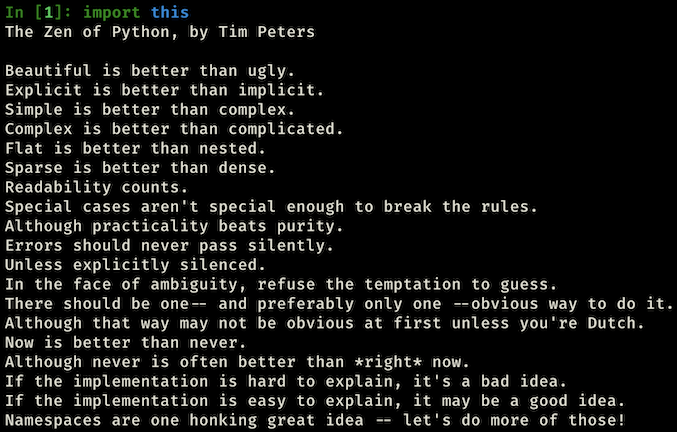Starbucks closing down 600 stores in 2008
My first experience writing computer programs was back in 2008. I was taking time off of college and working as a shift supervisor for Starbucks Coffee. In 2007, I joined the company at one of their busiest locations in the Southeast––a drive-thru store where everyone in Concord, North Carolina went to get their coffee beverages 1-3 times per day. After six months with the company I was promoted and sent to a new location where I would fulfill my new commission as a shift supervisor. The new store was a sleepy cafe in a business park––a far cry from the fast-paced store I’d come from that sat on a great corner location beside a shopping mall, movie theater, and hospital and just a of couple traffics light down from I-85 (in fact, this prime location was owned by Starbucks whereas most locations I’m told were leased).
My new cafe was patronized by professionals who worked at the corporate offices in the vicinity––finance and enterprise IT. In 2008, the economic depression hit and many of our customers lost their jobs. Eventually, Starbucks announced they would be closing 600 of its stores permanently––and my store was one of the first to be closed. But I’m not going to talk about that in this post.
Change of pace
Before a chunk of our customers got laid off, life at the slow-paced cafe was great. The tips were down, but there were benefits to the extra time we had: our store was the cleanest in the district; we had time to chat with interesting customers. One of those customers was a South African man, and I’m going to call him Dean in this post.
Dean
Dean visited us every afternoon along with his girlfriend. He’d always order a venti (large sized) coffee, and even though he never asked us to leave room at the top, he’d walk to the condiment bar and pour out half of his coffee then top it off with half-and-half. 1-3 refills would be ordered before he left the cafe, and his intake and consistency was impressive.
Dean was wicked smart, and would talk circles around you––charming you, insulting you, likely some small talk thrown in––before you knew what hit you. His dad was an engineer or scientist (I don’t remember which it was) who worked with satellites and rockets for the government. His siblings were similarly accomplished. It was clear to me that Dean shared his family’s intellect. He was a computer programmer who was taking time off of work for health reasons. I didn’t learn what the reasons were, but Dean did share that he had a severe case of Tourette Syndrome and was now on medication for it. He explained to me some of this ways it affected him: he could be at a restaurant for a meal, and if the server took too long describing the daily specials he’d mutter something offensive and personal towards them; he admitted to doing the same to me when we’d make small talk during daily customer-barista exchanges.
Mötley Two
We had other interesting regulars like a couple of roommates who were in a Mötley Crüe cover band together. They would’ve been delighted to hear me say this––just picture Nikki Sixx and Tommy Lee stumbling into a Starbucks cafe inebriated on a Saturday night and you get the picture of what they looked like. They were gentle souls who’d sit and chat with us baristas on the patio after we’d closed and locked down the cafe for the night.
Network security = money?
One of our white-collar professional customers was a project manager for one of the banks (Charlotte is/was a banking capital and there was more than one bank headquarters in Charlotte). He always wore a sharp suit and a big smile, with perfect hair despite keeping the top on his jeep down constantly. He had two degrees: economics and computer science. He looked like he was happy the way his life was going, but I thought they’d never let me declare an economics major at college since I took an online economics course and flunked it (I wish I was joking, but the professor’s tone via email was not welcoming or understanding when I asked for help or grace. It was my first time taking a college course 100% online and it was not a good experience.) I explored career options in technology and it seemed that the highest earning salaries were in a “network security” role. (Today I work in tech, and I still don’t know exactly what exactly a “network security” person does.) I determined that a first step onto the network security professional path would be to enroll in an “intro to programming” course in community college.
Intro to Python programming
I enrolled in a thrice weekly class that started at 8 o’clock in the morning. This was my first time at the community college’s central campus in downtown Charlotte. I showed up to class this first day and felt alienated. The other students were gathered around each other’s computer at one moment and then in an instant back at their own computer staring with laser focus into the monitor and typing quickly with intent. I didn’t even know how to touch type. I missed out on AIM and internet chatrooms. In high school I typed all my papers the night before and very slowly.
Beard, suspenders… Unix
The professor looked just like the Unix programmer from the Dilbert comic.

I knew nearly nothing about computers, but this professor didn’t fit what I’d pictured a computer expert to be like. His faculty bio stated that he enjoyed playing authentic Appalachian music on banjo. I didn’t think someone who cared so much about the art form of a rural society could be an expert in modern computers. His bio also stated that he first started working with computers in the US Navy in the 1950s. Back then I thought this meant he probably didn’t keep up with advancements in technology, but now I think I would pay good money to go back in time and hang out with this man in class and in office hours so I could glean all I could from his knowledge and experience.
On the first day of class the professor talked a bit about Python. I remember he said Python was “good enough for NASA to use for space shuttle missions”. Eventually he walked us through writing ahello world program in Python. (Yes, this was my first hello world.)
def class_is_boring:
By week two he’d introduced functions. I had not struggled one bit with the material, in fact I was bored and not challenged. I typed slow, but I completed the labs with time to spare. I was struggling to stay motivated. I felt disconnected from the professor who seemed to be separated from modernity by several generations to me who was young and immature. I felt disconnected from my classmates who never spoke a word to me, but seemed to all know each other, chummy with their greetings, inside jokes, and swapping flash drives and shared a common interested in––for all I knew––trying to hack the mainframe.
I was intimidated by my classmates when the class first started. It was clear that typing speed wasn’t the only thing that separated us: they seemed to have no interest outside of computers. I found a small personal victory in hanging with the class at least for a couple of weeks––I discovered I was not incapable writing a computer program and this felt pretty alright. I had a glimpse that I could survive in the world of technology, but it wasn’t fulfilling.
I’d stop by my Starbucks in the mornings before class, and think about how I was happier there than I would be at the 8am Python programming class. Yes, Starbucks wouldn’t be a way for me to earn enough money to cruise around with the top down while wearing expensive suits, but money wasn’t everything. The class was boring, and I would have rather been in bed. I dropped the class after the second or third week.
Feeling “zen” this go ‘round
That was twelve years ago. I haven’t written much Python code since. That’s about to change.
This past weekend I installed Python (Anaconda distribution). It took me all weekend to install Python––*lolz jk*––but I wrote Python code and it was fun! I’m a seasoned programmer now, so it’s interesting to come back to this language that is well-designed and different from other languages I know, namely Ruby with it’s Perl-influenced TIMTOWTDI (“there is more than one way to do it”) principle. I appreciate the alleviation of decision-fatigue that Python offers here. I also like that I instantly feel empowered to step into the worlds of data engineering or machine learning if I choose to, since Python is important in those realms. JavaScript has been my primary scripting language for the past couple years, and it’s given me a passport into the internet browsers and popular frameworks like React, but it’s exciting to see what new adventures the future holds!


